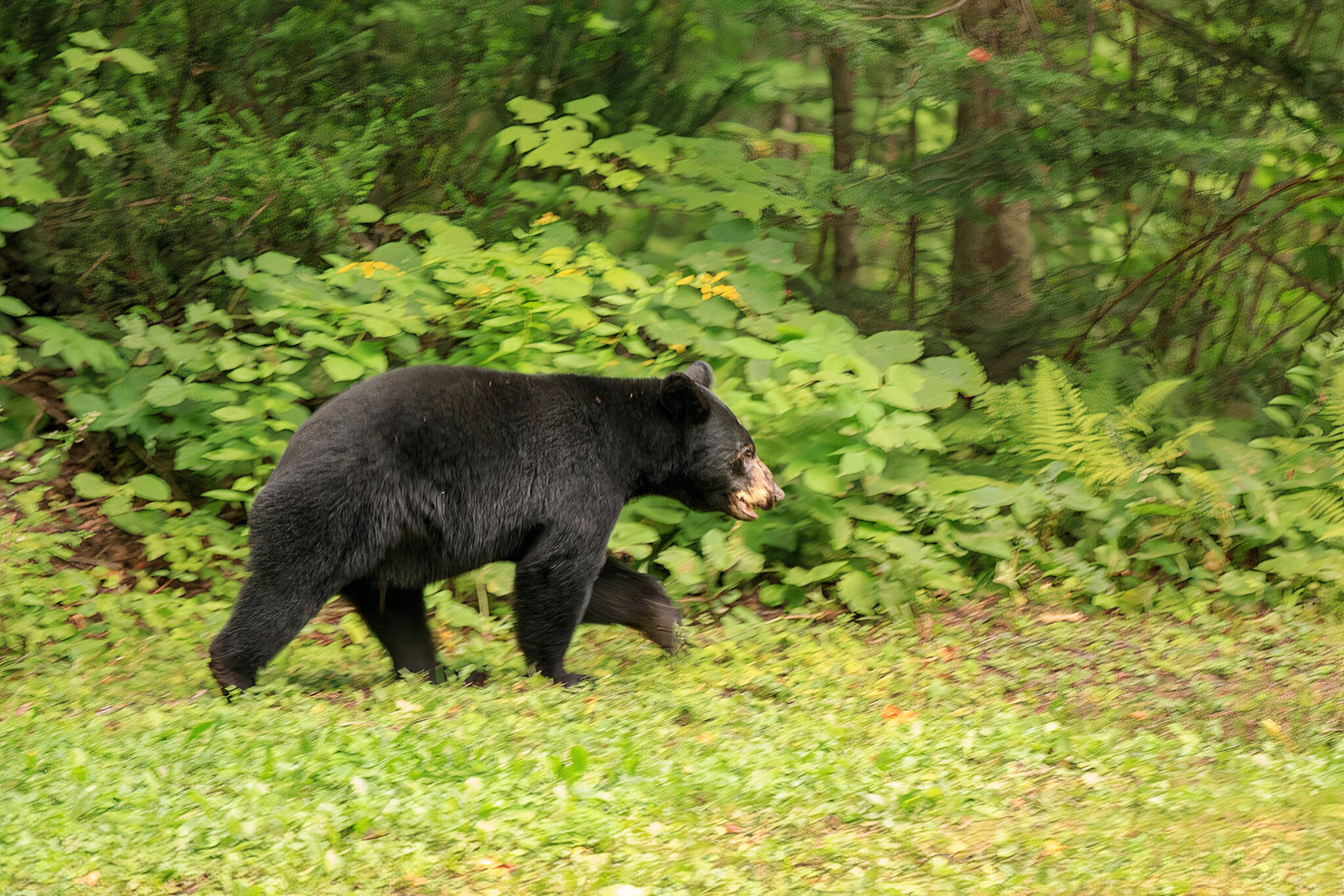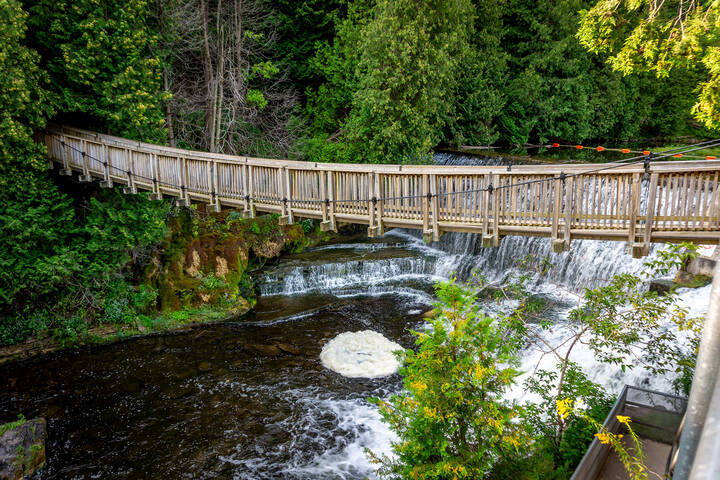
Here's what to do if you see a black bear while visiting one of Ontario's provincial parks
There's nothing better than heading out to one of Ontario's beautiful provincial parks for a day-long hike or weekend camping trip throughout the summer and early fall, but being in nature means there's always a chance you could spot a black bear on your adventure.
In fact, chances are quite good you'll see one if you spend enough time exploring the wild in Ontario, because over 90 per cent of the province's parks are located in bear country.
As a result, Ontario Parks has released a comprehensive guide outlining how to be a bear-wise visitor, and it includes a number of tangible tips for how to safely share space with bears.
Over 90% of provincial parks are in bear country. We want to share space with bears, keeping our human visitors and all our wildlife residents safe.
— Ontario Parks (@OntarioParks) August 5, 2021
If you’re planning a visit, here are some important safety tips about Black Bears: https://t.co/lg2J6wCG0W pic.twitter.com/IhvzV5velJ
"A safe bear sighting during one of your adventures with Ontario Parks can be a lasting memory," says Ontario Parks in the new guide. "Educating yourself about bears before your visit is important and the mark of a responsible park visitor."
The first step to being a bear-wise visitor is being aware of their habits. Black bears hibernate from November to April, meaning you won't run into any of them during this half of the year. But from May to October, these omnivores are out looking for food — mostly berries and nuts — to help them gain enough weight to survive the winter months.
The food supply available depends on the conditions that particular summer, and this, according to Ontario Parks, drastically affects their behaviour.
If the weather is warm yet rainy, visitors will be less likely to see a black bear on the side of the road, on a hiking trail, climbing up a tree or swimming across a river.
"However, when natural food sources are poor due to drought and heat, Black Bears will go to great lengths to find food," says Ontario Parks. "This might be a time when campers see them near campgrounds."
And that's exactly why it's important to know how to "bear-proof" a campsite. That means ensuring food and food storage containers, dog food dishes, barbecues, camp stoves, dirty dishes, garbage, toiletries and bird feeders are all stored away where they can't be seen or smelled — ideally in the trunk of a vehicle with the windows closed.
Leaving food and other attractants out for wildlife is actually against the law, and violators may be fined and/or evicted under the Provincial Parks and Conservation Reserves Act.
"Bears are normally shy of humans, and are quick to get out of our way," says Ontario Parks. "However, they are very smart animals. When they find food at a campsite, they quickly associate people and campsites with food instead of something they should be scared of. They won’t continue to be shy if they think they can get a free meal!"
Bear-proofing while backcountry camping may be slightly tougher, but it's just as important. The safest thing to do is to hide wildlife attractants in several layers of packaging to lock in scents, according to Ontario Parks, and it's also imporant to prepare food far from the site, clean dishes immediately after eating and secure garbage somewhere safe.
Nothing should be stored in tents besides sleeping bags and pillows, and food packs should be hung far from tenting and cooking areas, at least 4 m above the ground and 2 m away from tree trunks.
To stay safe from black bears while hiking, Ontario Parks recommends packing snacks in several layers of packaging to reduce scents, not wearing headphones, travelling in groups of two or more, making lots of noise and keeping dogs on the leash at all times.
If you do happen to spot one of these large mammals while camping or hiking, make sure to stay calm and don't panic. The best thing you can do is slowly back away from the bear, making sure to drop any food you may be carrying, and be aware that the noisier the bear is, the less dangerous it is.
Bear attacks are extremely rare and most of the time, when caught off guard, bears are stressed and just want to flee.
If the bear doesn't leave right away, throw objects, wave your arms and make noise with a whistle or air horn. Use bear spray if you have it, and be sure to know the warning signs of a defensive or predatory bear.
You should also call your park warden or the Bear Wise hotline at 1-866-514-2327 in the event of a bear spotting, or 911 in case of an emergency.
"When visiting our parks, you are sharing the forest with animals, including birds, insects, and — yes — black bears," says Ontario Parks. "Remember that black bear encounters only happen because we visit the forests that are their homes."
Latest Videos
Latest Videos
Join the conversation Load comments







